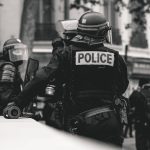In today's world, it's all too easy to be labeled a "conspiracy theorist" simply for asking questions. The term has become a convenient way to dismiss anyone who dares to challenge the mainstream narrative. But let's get one thing straight: skepticism is not about donning a tin foil hat and imagining sinister plots at every turn. It's about recognizing that there are clear, undeniable gaps in the stories we're being fed and demanding honest answers.
Take, for example, the government's handling of the COVID-19 pandemic. From the beginning, there were inconsistencies and contradictions. We were told masks were unnecessary, then essential. Lockdowns were imposed in the name of safety, yet the science behind their efficacy remained shaky at best. It's not a conspiracy to point out that the goalposts kept moving. It's just common sense to wonder why.
Then there's the issue of Big Tech censorship. The major social media platforms have been quick to shut down any discussion that deviates from the approved script. Doctors and scientists who question the official COVID-19 narrative find themselves deplatformed. If their claims are so outlandish, why not allow them to be debated and debunked publicly? The rush to silence dissenters only fuels the suspicion that there's something to hide.
The 2020 election is another prime example. The irregularities and anomalies that occurred during the voting process were unprecedented. Mysterious ballot drops in the dead of night, issues with voting machines, and a slew of affidavits attesting to fraud were all dismissed by the mainstream media as baseless. Yet, the questions linger. Shouldn't a healthy democracy encourage scrutiny to ensure the integrity of its elections?
Let's not forget the shifting narratives around climate change. The science is supposedly settled, but predictions from just a few decades ago have failed to materialize. We're now expected to believe every new alarmist report without question, despite past inaccuracies. Pointing out these discrepancies doesn't make one a denier; it makes one a critical thinker.
In the realm of foreign policy, the rationale behind military interventions often seems murky. We were told Saddam Hussein had weapons of mass destruction. He didn't. We were told intervention in Libya would bring stability. It didn't. Questioning the motives and outcomes of such actions isn't about hatching wild theories; it's about holding our leaders accountable for their decisions.




